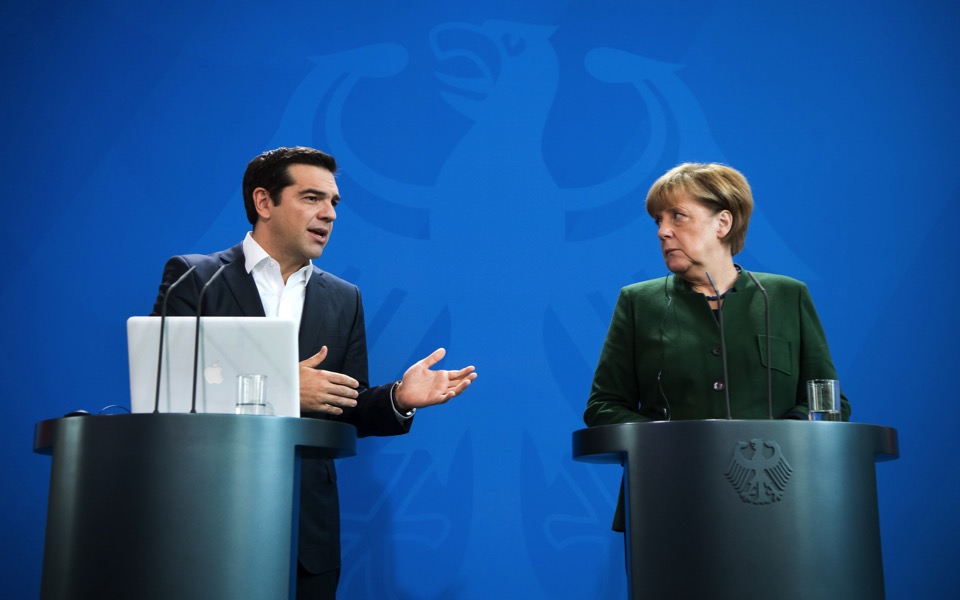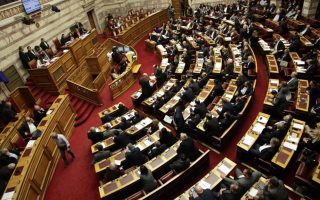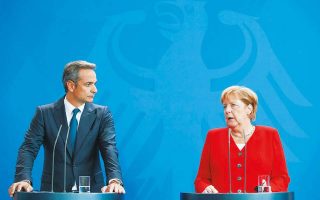Greek PM tells Merkel ‘wounds of crisis’ must be healed

Greek Prime Minister Alexis Tsipras told German Chancellor Angela Merkel on Friday his country was set for strong economic growth and this would help to "heal the wounds of crisis" after years of austerity imposed under international bailouts.
On a visit to Berlin, Tsipras was keen to emphasise Greek progress on reforms demanded by Germany as the European Union’s most powerful economy and paymaster – a situation that has made Merkel a hate figure for some Greeks.
The trip’s timing was also significant, as Greece wrangles with its creditors over terms for its current bailout, the latest of three. On Thursday it snubbed its lenders by passing legislation to give pensioners a one-off Christmas bonus.
Tsipras told reporters before meeting Merkel that he would inform the chancellor of the positive momentum of the Greek economy and his government’s "spectacular overachievement" of revenue targets.
"The projections for the Greek economy are extremely positive for next year," Tsipras said, adding authorities expected 2.7 percent growth in 2017 and 3.1 percent in 2018.
But Greece’s economic development should not simply be confined to statistics and numbers, he added.
"We want it to heal the wounds of crisis and to alleviate all those who have over these difficult years made huge sacrifices in the name of Europe," Tsipras said.
Years of enforced austerity in debt-laden Greece, required under the terms of two initial bailouts worth 240 billion euros and a current one worth 86 million, have strained relations with Germany.
Some Greek demonstrators protested by dressing up as Nazis when Merkel visited the country in 2012. Last year, Germany dismissed demands form Athens to pay it reparations for World War Two.
Seeking to turn the page, Tsipras said Greece needed to send a strong signal to international investors that the crisis was a thing of the past.
Merkel showed little willingness to take a position on the disputed question of whether the pre-Christmas payout to pensioners was compatible with bailout obligations.
Standing next to Tsipras, she said decisions lay in the hands of the three institutions handling negotiations with Greece – the European Commission, the European Central Bank and the International Monetary Fund – but "the Greek prime minister’s assessment of the situation will certainly play a role in our discussions."
A German Finance Ministry spokesman said the institutions involved in Greece’s aid programme were critical of Athens in a preliminary report assessing the unilaterally announced measure.
"To make the aid programme a success, it’s essential that measures are not decided unilaterally or are not taken back without advance notice," said spokesman Dennis Kolberg.
The eurozone bailout fund ESM said on Wednesday that eurozone lenders had put a short-term debt relief deal on hold as a reaction to the actions by Greece. The deal, agreed on Dec. 5, would reduce its public debt by 20 percentage points of gross domestic product by 2060. [Reuters]





